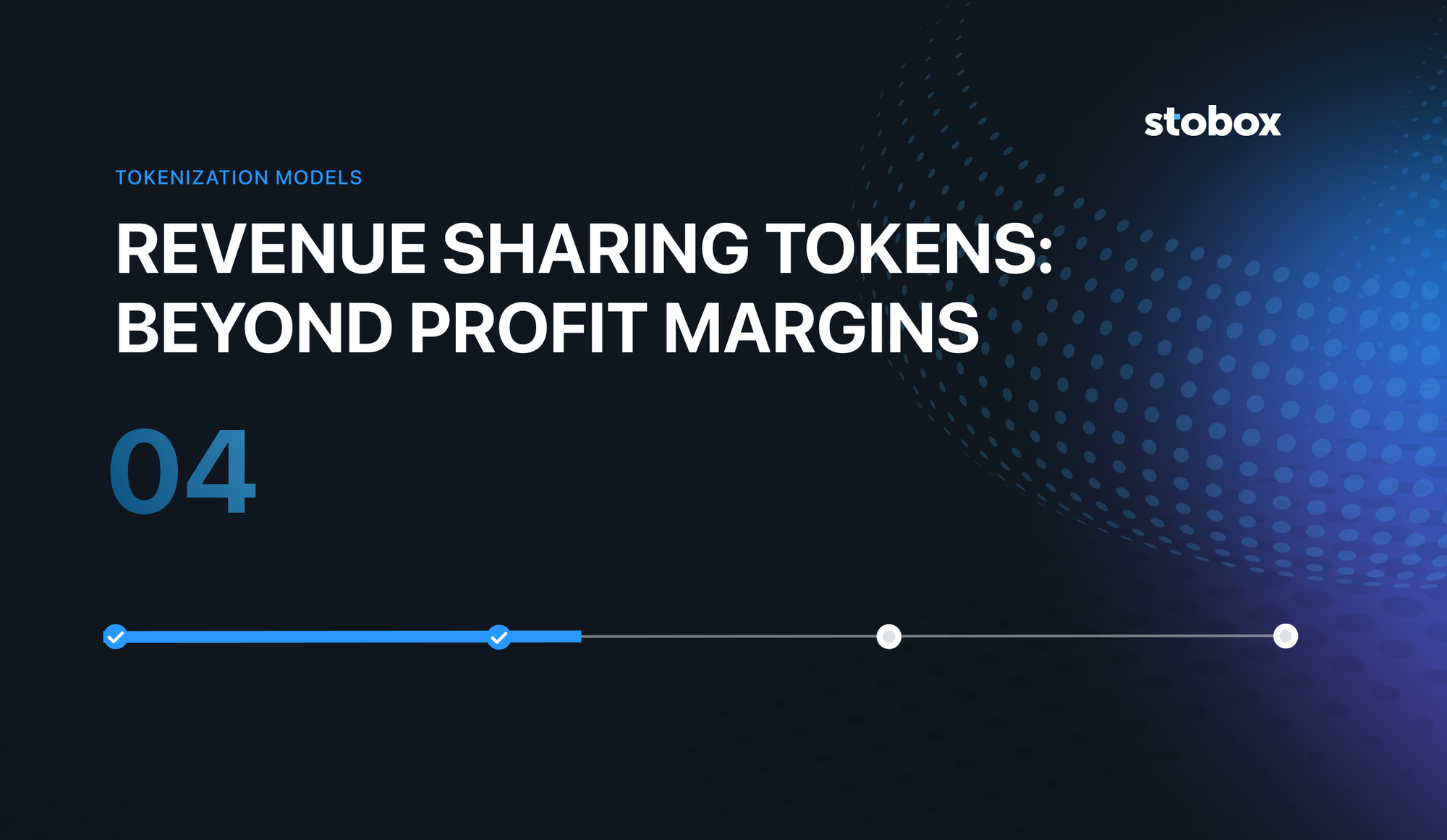Revenue Sharing Tokens: Beyond Profit Margins
Revenue Sharing Tokens represent a departure from traditional profit-sharing models. Instead of distributing profits, these tokens allocate a portion of a company's total revenue to token holders.

Embarking on our exploration of tokenization models, let's dive into the world of Revenue Sharing Tokens. These tokens bring a unique dimension to the financial landscape by distributing a portion of a company's total revenue to its token holders. Join us as we demystify this model, provide practical examples, and uncover data that sheds light on its impact.
Understanding Revenue Sharing Tokens
Revenue Sharing Tokens represent a departure from traditional profit-sharing models. Instead of distributing profits, these tokens allocate a portion of a company's total revenue to token holders. This approach offers a transparent and direct connection between a company's financial success and the benefits reaped by investors.
How Does It Work?
Companies issuing revenue-sharing tokens commit to distributing a predetermined percentage of their total revenue to token holders. This distribution is not contingent on net profits, making it a more inclusive model that considers gross revenue.
Real-World Example: Company A's Revenue Dividend Tokens
Imagine Company A, a software development firm, issuing Revenue Dividend Tokens. Investors holding these tokens receive a share of the company's total revenue, providing a direct link between the company's success and investor returns.
Advantages of Revenue Sharing Tokens
- Transparency in Revenue Allocation
Revenue-sharing tokens offer clear and transparent mechanisms for distributing a share of total revenue, fostering trust among investors. - Inclusive Rewards
Unlike profit-sharing, revenue-sharing is not dependent on net profits, making it a more inclusive model that benefits investors even in scenarios with thin profit margins. - Stability in Returns
Investors in revenue-sharing tokens enjoy a more stable income stream, as the model is based on the company's gross revenue rather than fluctuating profit margins.
Data Insights
While specific data may vary, a survey by Blockchain Capital indicates that companies implementing revenue-sharing token models have experienced a 25% increase in investor satisfaction compared to traditional equity models.
Challenges and Considerations
- Precision in Revenue Measurement
Determining and accurately measuring total revenue is crucial for the success of this model, requiring robust financial reporting and auditing processes. - Educating Investors
Investors may need a clear understanding of the distinction between profit-sharing and revenue-sharing models to appreciate the unique benefits offered by revenue-sharing tokens.
The Road Ahead
Revenue Sharing Tokens represent a progressive step towards aligning investor interests with a company's overall financial performance. As we navigate through diverse tokenization models, our journey continues with insights into fund units, adding depth to our exploration of innovative financial structures.


